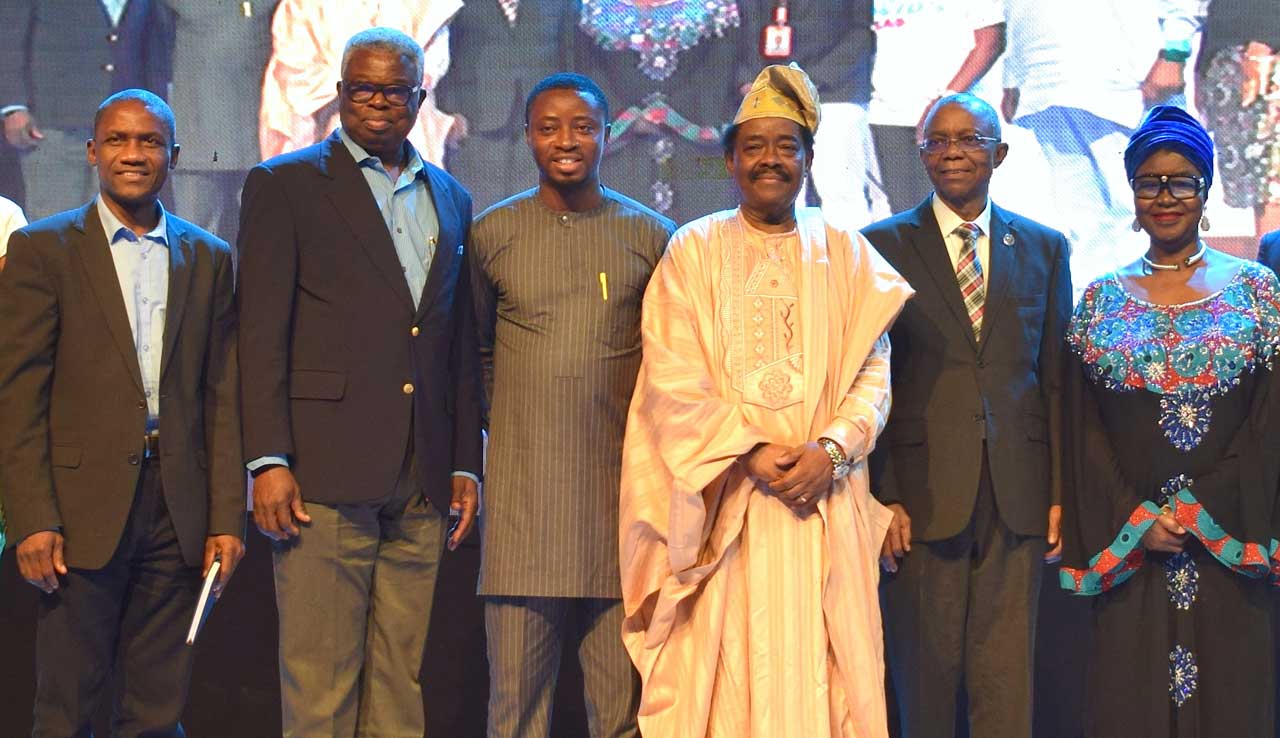
Despite the lofty targets set for the country’s digital infrastructure, the Lagos Chamber of Commerce and Industry (LCCI) has stated that the government lacks the political will to implement laudable policies that can transform the nation’s digital infrastructure.
The Federal Government had planned to double the country’s infrastructure stock from 35 per cent to about 70 per cent with the inauguration of the National Council on Infrastructure.
The chamber said that the reason for doubting the new FG’s 70 per cent target for infrastructure contribution to the national GDP is linked to the decade-long corruption, adding poor infrastructure was Nigeria’s greatest socio-economic development challenge.
President of the LCCI, Michael Olawale-Cole at the 2022 ICTEL EXPO, in Lagos explained that the benefits to the nation’s ICT and Telecommunication sectors and on government’s digital economy agenda would be enormous if Nigeria got digital infrastructure right.
The LCCI president said that the multiplier effects of an effective and efficient digital infrastructure in the country on national development cannot be overemphasised, noting that the government had announced a target of $40 billion private capital investment in digital infrastructure by 2025, besides facilitating about $1 billion in private equity.
He said: “Just last week, the federal government inaugurated the National Council on Infrastructure, with a plan of doubling Nigeria’s infrastructure stock of the Gross Domestic Product, GDP, from the prevailing 35 per cent to about 70 per cent. The issue has always not been with good initiatives, but in their implementation. That remains a big concern to us as a Chamber, hence the desire to make a difference with the 2022 ICTEL EXPO.
“The 2022 ICTEL EXPO is giving deserved focus to digital infrastructure because, over the decades, next to corruption, poor infrastructure is Nigeria’s greatest socio-economic development challenge.
“Those that are commonly focused on are power, roads, water. We dare say however that, as critical as the listed ones and indeed others not listed are, if Nigeria gets digital infrastructure right, the benefits to the nation’s ICT and Telecommunication sectors and on government’s digital economy agenda would be enormous.
“This is clearly because virtually everything is now done electronically, thereby making issues like Access, Internet of Things, Right of Way, Broadband Penetration, Policies, Regulation and Cyber Security matters of great concern. The questions then include: Where are we in Digital Infrastructure? What are the challenges and the way forward? And who does what, and when?”
Also speaking, the Chairman, Heirs Holdings, Tony Elumelu and other Information and Communication Technology (ICT) stakeholders called for the scaling up of Nigeria’s digital infrastructure through adequate multi-sectoral investments to accommodate the country’s rapidly growing digital economy.
Elumelu, represented by the Group Chief Executive Officer, United Capital Plc, Peter Ashade, noted that the growth in the country’s fintech indicates the need to rapidly scale up the digital infrastructure seeing that in 2021, Nigeria’s fintech startups raised about 730 million dollars in investments.
He however noted that the country’s internet base was barely half of its population at the start of 2022 with 51 per cent internet penetration, 44 per cent broadband penetration and 54 per cent 3G coverage.
He said that the deployment of the 5G network spectrum to rural areas was currently low and presented huge opportunities for the private sector to drive economic growth in the informal sector which dominates rural activities.
He stressed that private participation was needed to spur the adoption and use of broadband.
“There must be preferential taxation for providers who agree on specific universal access targets.
“There’s also the need to review spectrum policies, provide more license spectrums and focus more on transparency initiatives to reduce uncertainty around long-term investments for private investors.
“Heirs holdings is uniquely positioned to work with ICT industry stakeholders on specialized financing for ICT infrastructure projects, amongst others seeing that digital infrastructure is the growth catalyst for modern economies,” he said.
The Managing Director, Galaxy Backbone Limited (GBB), Prof. Mohammad Abubakar, said public-private partnership (PPP) was essential to providing efficient digital infrastructure and played a critical role in accelerating digital transformation, through collaborations and effective communication across borders.
Abubakar who was represented by Mr Dauda Oyeleye, Group Head, Business Development, GBB, said to further solidify GBB, a government agency’s stand on PPP, the company created an Enterprise Business Group (EBG) tasked with the sole responsibility of managing private customers as well as structured partnerships.
He stated that GBB had a pervasive fibre connectivity network across the nation, which the private sector could key into.



